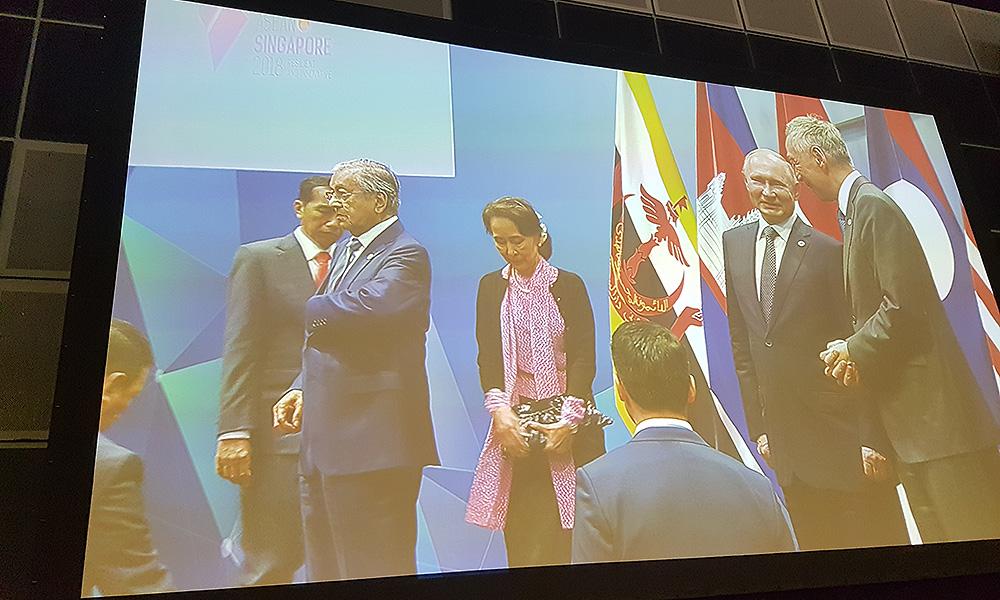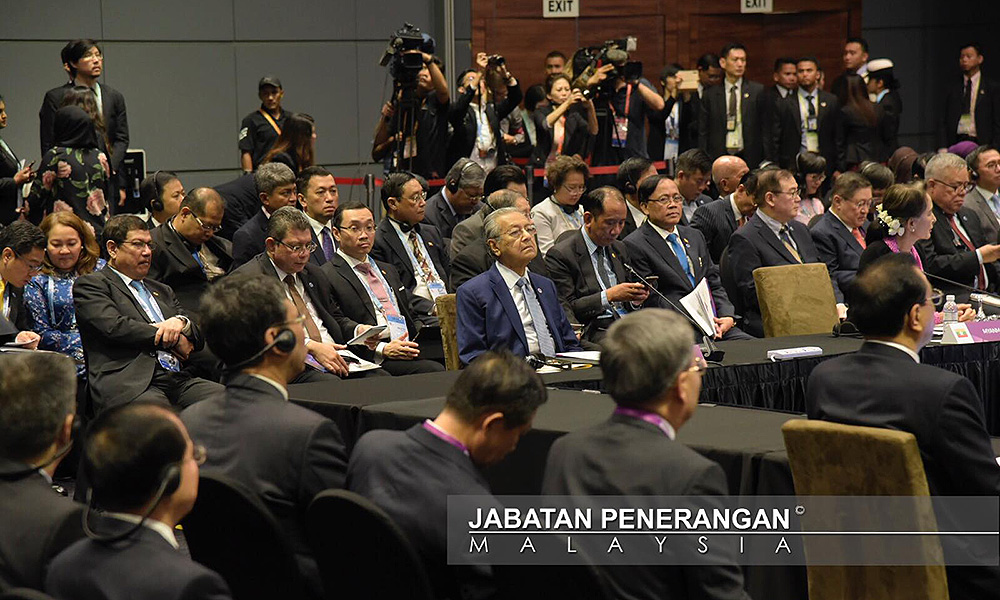The focus of the 33rd Asean Summit held in Singapore has been on economic and digital integration, and it came as a relief when Prime Minister Dr Mahathir Mohamad commented on the human rights violations in Myanmar during a press conference.
Mahathir said that he spoke directly to de facto Myanmar leader Aung San Suu Kyi at the summit, and pointed out that "Asean leaders are very diplomatic and won't make strong statements."
The Rohingya crisis in the Rakhine State has driven half a million persecuted refugees to flee across borders into Bangladesh, Thailand and Malaysia. Burmese soldiers have raped and killed young Rohingya women, burnt and looted Rohingya villages.
Suu Kyi, the Nobel Peace Prize laureate, has rejected the United Nations probe findings of “genocide” of the Rohingya.
She has been widely criticised by the international community for her passivity in the face of such human rights abuses, and Amnesty International recently stripped her of a human rights award.
At the summit, Mahathir criticised Suu Kyi directly: “We are very disappointed because someone who has been detained before should know the suffering.

"It seems Suu Kyi is trying to defend what is indefensible. They are actually oppressing these people to the point of killing them, mass killing... burial in graves dug by them.
"That kind of thing may be relevant in ancient times but not in modern days,” he said.
There are an estimated 100,000 Rohingya in Malaysia, and the families of Rohingya who fled to the country by boat told Australian media earlier this year that Myanmar authorities threatened to arrest them for allowing their relatives to leave.
As of March 2017, Malaysia has allowed Rohingya refugees to work in Malaysia to prevent their exploitation.
Historically, Asean has not prioritised upholding human rights. However, following Mahathir's strong criticism, a draft statement for the summit now reflects a stronger line being taken within the group.
Asean will now call for those who committed atrocities in Myanmar to be held “fully accountable” for their crimes. Will Mahathir as the elder statesperson of Asean – at 93 years of age – be a new champion of human rights?
'Speaking his mind'
According to Merdeka Center executive director Ibrahim Suffian, Mahathir is not at the Asean Summit to be a “democratic crusader”.

"Mahathir is actually out there speaking his mind on matters that many people agree with. In the case of Myanmar, gross violations have taken place.”
"Mahathir will not interfere in the affairs of how neighbouring governments run their affairs. With Myanmar, he makes an exception as the Rohingya crisis has become a global issue."
After all, the next Asean summit will be held in Thailand, which is run by a military government headed by Prayut Chan-o-cha.
Under the regime, freedom of expression and press freedom have been greatly oppressed. The internet has been censored, and any criticisms of the junta on social media is considered a crime.
The host nation of the Asean Summit, Singapore, has also been criticised by the international community for its lack of press freedom.
Other Asean members have their own human rights transgressions, with an estimated 12,000 people executed in the Philippines' war against drugs championed by President Rodrigo Duterte.
In Vietnam, political parties other than the Communist Party are forbidden, and there are large numbers of political prisoners are incarcerated for criticising the state.
Mahathir had also implored Myanmar to accept the Rohingya as their citizens at the Asean Summit.
The Asean Declaration of Non-Interference may be interpreted to suggest a kind of passive acceptance and silence of one's neighbour. Yet, if the refugee crisis spills into Asean borders, driving desperate refugees towards terrorism as has happened with the Arakan Rohingya Salvation Army which has Al-Qaeda links, is this still an issue that the region can afford to not intervene? The ideology of hatred against another group of human beings has to be condemned, at the very least.
Clause 18 of the Asean Human Rights Declaration explicitly states the right of every individual to citizenship. “Every person has the right to a nationality as prescribed by law. No person shall be arbitrarily deprived of such nationality nor denied the right to change that nationality”
As the Rohingya Muslim population remain stateless, the big question is, will Asean be able to accord legal status to this population if Myanmar does not change its stance?

